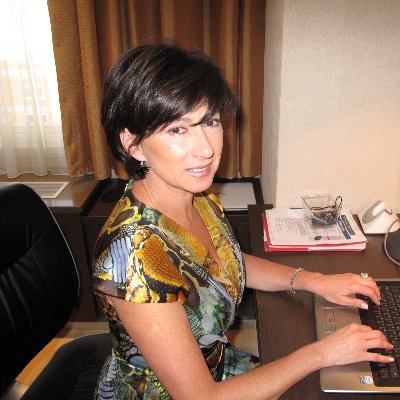
Diana Klurfeld is an author and a top-rated Cobalis contributor. Ms. Klurfeld offers our readers unbridled insight into the challenges facing many healthcare providers in New York City.
Diana Klurfeld regularly assists medical practitioners with the development of business plans and budgets for their new hospitals and clinics. Diana also consults with various healthcare providers about the benefits of the meaningful use of technology in their practice. Diana Klurfeld works with each individual practitioner to outline the systems specific to their practice and the benefits that may be derived from her integration strategies.
In addition to her work providing healthcare management services to medical practitioners throughout New York City, Ms. Klurfeld also spends much of her time working with community leaders to advance public health initiatives.
No patient left behind: Diana Klurfled gives a voice to those battling under-funded diseases
Diana Klurfeld has made a crusade of advocating for patients who fall through the medical industry’s cracks. Klurfeld, the founder of Klurfeld Cares, a New York-based volunteer organization, works to raise awareness for those who face under-researched and underfunded diseases.
With Klurfeld cares, Klurfeld stands up for these patients by gathering information on their diseases into an invaluable database for patients, physicians, and caregivers. In addition, she and her team of volunteers educate physicians on illnesses that are not well understood, hopefully closing the gap in patient care that many who suffer from orphan diseases feel every day.
Orphan diseases, according to Klurfeld, are those diseases that the medical and pharmaceutical industries have not broadly addressed. This may occur due to a disease’s rarity or because its treatment is not profitable.
“While it’s unfortunate that the medical and pharmaceutical industry’s decision on whether or not to develop and market treatments for diseases can sometimes come down to profitability, that is our reality,” Klurfeld says. “That reality creates patients who are simply ignored, left to hunt for treatments on their own.”
And because the facts surrounding most orphan diseases have largely not been taught in medical schools, Klurfled says, these diseases’ origins, symptoms, and treatment are not well understood by many doctors.
“Patients battling orphan diseases encounter challenges throughout diagnosis and treatment,” she says. “They often feel lost and alone. It’s my mission to give these patients a voice and hope for effective treatments or even a cure.”
Klurfeld herself is not alone in her quest. Her husband, Alex Klurfeld, co-founded Klurfeld Cares with Diana. A physical therapist, he knows first hand the struggles of patients who search for treatments for misunderstood diseases.
Together, Alex Klurfeld, Diana Klurfeld, and their team of dedicated volunteers are working tirelessly to call attention to orphan diseases and the plight of those diagnosed with them.
This includes diseases like Ehler Danlos, Chronic Fatigue Syndrome, Duncan’s Syndrome, ALS (Lou Gehrig’s Disease), and many, many others.
“This campaign is broader in scope than any we’ve done before,” Klurfeld says. “With enough awareness, we can make a difference for patients who the traditional medical industry has left behind. And by compiling information from doctors, caretakers, and patients around the globe into a database, we are creating an invaluable research and treatment tool.”
The Klurfeld’s say that patients and their caregivers often find Klurfeld Cares when they have grown frustrated with the lack of treatments available to them. Recently, a young mother with Ehler Danlos, a genetic connective tissue disorder, reached out to Klurfeld for support. Doctors often don’t realize that Ehler-Danlos is sometimes the underlying condition behind scoliosis, chronic pain, and early osteoarthritis, Klurfeld says.
“And because there is no known cure for Ehler-Danlos, the only treatment for patients with Ehler-Danlos is symptomatic therapy,” she added. “But with increased funding, research, and medical education, orphan diseases like Ehler-Danlos and others stand a fighting chance at being treated effectively.”
Even though roughly $29 billion is spent each year on medical research in the United States, Klurfeld says, some diseases like Ehler-Danlos fall through the cracks. Without being well known or without a celebrity name behind their cause, these diseases are simply forgotten. And often, there are not enough lobbyists to call on capital hill to fund these diseases.
“That’s precisely why we created Klurfeld Cares,” Klurfeld says. “There’s a real need for energetic, non-profit work in this area. We are about real solutions, not just talk. We are about more than JUST awareness. We are about research. We are about problem-solving.”
And it’s not just the diseases that you’ve never heard of that are underfunded, she says. Emphysema, the third leading cause of death in America, receives far less funding than diseases like cancer or HIV, which cause fewer deaths.
“Back in 2004, the Global Forum on Health Research announced that only 10 percent of medical research was devoted to diseases that cause 90 percent of the world’s health burden,” Klurfeld says. “While I’m not aware of any new research into that funding gap, it’s clear that many of our deadliest diseases are still underfunded.”
Another reason many diseases are underfunded is that their funding was halted when repeated efforts towards a cure failed, Klurfeld explained. The pharmaceutical giant Pfizer, for example, recently announced that it would no longer be funding research towards Parkinson’s or Alzheimer’s Disease because their research proved ineffective.
But thanks to the work of Diana and Alex Klurfeld and their team, a light is being shown on troubling facts like those. Much-needed attention is being drawn to both new and long under-funded and under-researched diseases.
Klurfeld Cares is being the change that we all want to see in the world by standing up for the voiceless. With grassroots awareness efforts and data-driven research models, Klufeld Cares is searching for solutions.
“It is our hope that one day no one will feel left behind,” Klurfled says. “Everyone deserves adequate treatment and a chance at a cure.”
For more information or for ways to support Diana and Alex Klurfeld’s mission, visit klurfeldcares.com.